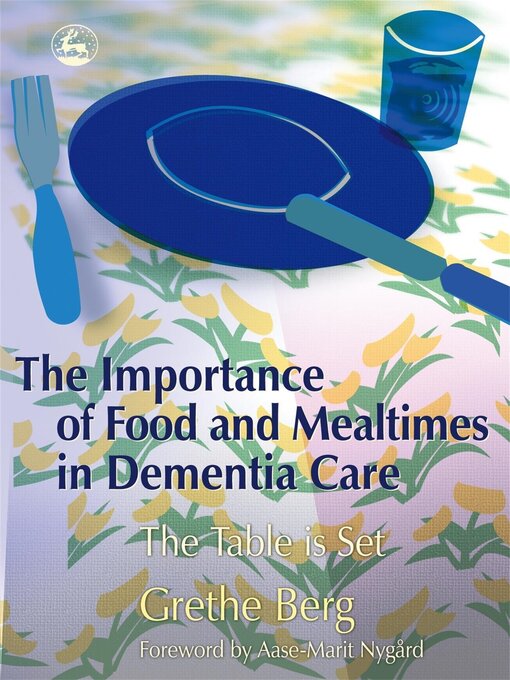Mealtimes are about much more than just re-fuelling, and the importance of mealtimes in the care of people with dementia cannot be overestimated. Using her extensive experience of working with older people with dementia, Grethe Berg explains how mealtimes can be used as natural opportunities for meaningful interaction, socialising and reminiscing, and useful forums for taking part in familiar tasks.
The book considers the social significance of mealtimes and their role in maintaining patients' feelings of social attachment and well-being as well as the impact of the symptoms of dementia on food and mealtimes. It also explores different types of residential care and how they can make mealtimes a focus of activity for patients. Finally, the author discusses practical implementation strategies, considering variables such as building design, interdisciplinary collaboration, organization of staff and residents, and staff participation and conduct at mealtimes.
This book provides much-needed help and practical strategies for care managers and carers to reclaim mealtimes as positive experiences for people with dementia.
- Lived experience of Dementia
- Lewy body dementias
- Frontotemporal Dementia
- Younger Onset Dementia
- LGBTI and dementia
- Eating and drinking well
- Activities and Engagement
- Culture, Religion and Spirituality
- End of Life and Palliative Care
- Younger Readers
- See all living with dementia collections
- Caregiving : Support and Guidance
- About Dementia
- Early Stage Dementia
- Communication
- Changes in behaviour
- Grief and Loss
- Relationships, Intimacy & Sexuality
- Residential Care
- See all caregiving collections
- Dementia Care Practice
- Person-Centred Care
- About Dementia
- Dementia Care Therapies
- Pain and Dementia
- Exercise
- Leadership and organisational change
- Elderhood
- Changes in behaviour
- See all healthcare professionals collections
- Dementia Australia resources
- Audiobooks
- Australian content
- Memoir
- Fiction
- Brain health
- Worried About Your Memory?
- Reminiscence and life story work
- Exercise
- Mindfulness & meditation
- Self-care & Wellbeing
- See all featured collections collections
